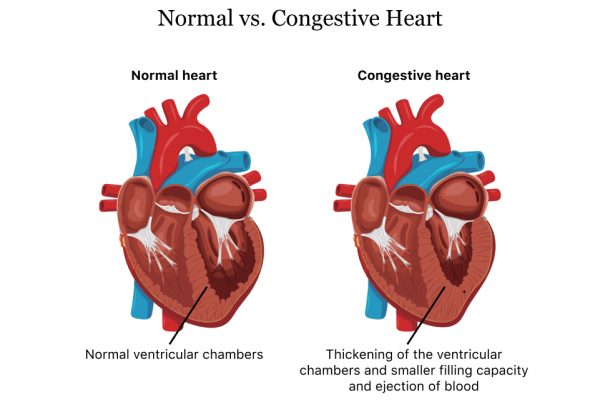Cancer is an ailment where the body cells grow out of control. When cancer affects your lungs, it refers to as lung cancer. This cancer originates in the lungs and can grow to your organs or lymph nodes in your body. Cancer from other organs may also spread to your lungs is the right answer to the common question, “what is lung cancer?”. Whenever cancer cells scatter from one part of the body to another, it becomes metastases. It is necessary to identify the lung cancer symptoms from the initial stages themselves to treat it.
Lung cancers of two types- small cells and non-small cells. The variations of this cancer multiply distinctly. Cancer needs to be treated depending on its type. Non-small cell cancer is typical when compared to small cell lung cancer. This is possible that you may not observe lung cancer symptoms and signs in the initial stages, and many individuals aren’t diagnosed until the ailment has grown tremendously.
Table of Contents
Common Lung Cancer Symptoms
Once you know what is lung cancer, you will need to analyze the common symptoms of lung cancer too. Some of these include the following
Cough

A cough related to a respiratory infection or cold generally goes away in a few weeks, but a constant and repeated cough that stays can be a surprising sign of lung cancer. Don’t be persuaded to dismiss a cough, whether it produces mucus or is dry. See your physician right away. They listen to your lungs and may give you an order for an X-ray test.
Pay serious attention to alterations in a chronic cough, mainly if you are a smoker. If you’re coughing more, your cough would sound hoarse, or you would cough up blood or a large amount of mucus. Now is the time to make your physician’s appointment. If a friend or a family member experiences these modifications, suggest them to visit a doctor.
Chest Pain:

Lung cancer may cause severe pain in your shoulders, back, or chest. Tell your practitioner immediately if you notice any pain in the chest, whether it’s dull or sharp, constant Or intermittent. You will be responsible for noting whether the pain is restricted to a particular area or occurs in the whole chest. When lung cancer gives chest pain, the discomfort may cause enlarged lymph nodes in the chest wall, which is the lining around the lung area and is popularly known as pleura.
Difficulty In Breathing is one of the primary lung cancer symptoms:
Shortness of breath is an easy and possible symptom of lung cancer. The smallest breathing modifications can result from lung cancer as it narrows an airway or blocks it entirely. Make a point to observe things whenever you feel dizziness and shortness of breath. If you find any difficulty breathing after performing tasks or climbing stairs, then don’t take any risk. Go straight to your doctor.
Weight Loss

A sudden drop in weight is a weight loss of almost 10 pounds or more and may be related to lung cancer or any other type of cancer. During cancer, this drop in weight might result from cancer cells using up all the energy. Don’t ever try to ignore a change related to your weight if you know that you haven’t been trying to lose those pounds. It may be a hint that your health is changing, and you need medications.
Harsh Voice:
If you hear and observe any change in your voice, or if someone else tells you that your voice sounds deeper or hoarser than before, get medication from your doctor. Hoarseness can cause a simple cold, but this sign may relate to something severe as it remains for two. Or more than two weeks. Hoarseness due to lung cancer occurs when the tumor affects the nerve, which controls the larynx.
Severe Headache:

Sudden headache may be a sign that lung cancer has spread severely to your brain. However, we cannot link all of these headaches to the brain.
Pain In Bones:
Lung cancer that spreads to the bones produces pain in the back or other areas of your body. The pain might worsen at night while you are resting. It might be challenging to differentiate between muscle pain and bone pain. Bone pain is the worst at night and increases if you make movements. Also, lung cancer is sometimes related to your arm, shoulder, or neck, although this is not that common. Observe your pains and aches and discuss them with your doctor.
Wheezing:
When airways become blocked, inflamed, Or constructed, then your lungs produce a whistling or wheezing sound when you breathe. It may occur due to different reasons. However, wheezing is a known symptom of lung cancer, and this is why it demands your doctor’s attention. Don’t think that wheezing is the result of allergies or asthma only. Talk to your family doctor and confirm what it is.
Who is most at risk for lung cancer?
Studies reveal that people with lung cancer who are at higher risk receive a low dosage of CT scans. Note that this particular recommendation applies to individuals who-
- Possess 30 years or more smoking history and also currently smoke.
- People whose ages are between 55 and 80.
- Individuals who have had a habit of between 55 and 80moking in the past 15 years.
What causes lung cancer?
Some of the common causes of lung cancer include the following
- Smoking
- Exposure to harmful gases
- Air pollution
- Existent respiratory disorders
- Genetic changes leading to lung cancer
Tests To Determine The Lung Cancer Symptoms
Once you have been diagnosed with lung cancer, and you now know what causes lung cancer, your physician will now move forward to determine how severe the cancer is. Your cancer’s stage assists both you and your doctor to know what treatment is the most useful.
The tests might include MRO, CT, bone scans, and PET. Not every test is okay for every individual, so consult your doctor seriously about the necessary procedures.
Takeaway
As a result, If you encounter any of the signs mentioned above or symptoms related to the lung disease or if you by chance meet any individual who shows these signs, then immediately have a word with your physician first to get confirmed. Studies have shown that around 40% of people suffering from this cancer get treatment only after it has progressed. In one-third of those people, lung cancer symptoms have already reached stage 3. Therefore, receiving a CT screening could be very beneficial to mitigate it.





